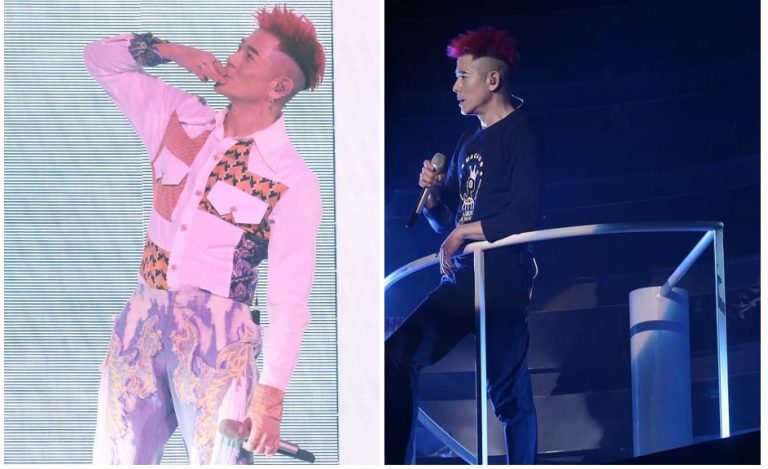The name Aaron Kwok is as easily recognizable throughout Asia as a catchy chorus. He has captivated audiences for decades with his catchy music, moving dance routines, and filmography, which has grown significantly over the years. He is frequently referred to as one of Cantopop’s “Four Heavenly Kings,” a moniker that continues to inspire awe today. His financial portfolio, however, presents a noticeably more measured picture than that of some of his peers.
Aaron Kwok has an estimated net worth of $20 million, which may not seem like much in comparison to celebrities like Jackie Chan or even fellow Heavenly King Andy Lau, who are valued at over $70 million. However, net worth is merely one aspect of a much more complex story that is woven from well-considered decisions, imaginative risks, and surprisingly sensible individual choices.
Aaron Kwok – Personal and Professional Snapshot
| Category | Details |
|---|---|
| Full Name | Aaron Kwok Fu-shing |
| Birthdate | October 26, 1965 |
| Birthplace | Hong Kong, China |
| Height | 5 feet 8 inches (1.73 m) |
| Education | St. Joseph’s College |
| Profession | Singer, Actor, Dancer |
| Active Years | Since the 1980s |
| Spouse | Moka Fang (married 2017) |
| Known For | “Four Heavenly Kings” of Cantopop |
| Estimated Net Worth | $20 million (as of 2025) |
| Luxury Assets | Ferrari Enzo, Pagani Zonda F, Porsche GT3 |
In his early years, Kwok took a conventional route. He joined his father’s gold business after graduating from St. Joseph’s College. His career path took a drastic turn when his brother took over the family trade, which he had initially been expected to inherit. Aaron’s path into the entertainment industry was paved by that crucial choice, which greatly influenced Cantopop’s current identity.
Kwok’s Michael Jackson-inspired performances were drawing attention by the early 1990s. His extremely dynamic and strikingly beautiful dancing style gave Hong Kong’s pop culture a new lease on life. Aaron’s innate charisma made him a dual threat on stage and screen during a period when music and film were quickly blending.
Kwok has starred in over 30 movies and put out over 20 albums in the last thirty years. From a heartthrob pop idol to a multifaceted performer who has embraced both art-house films and commercial hits, his career has remained remarkably dynamic. His performance in “After This Our Exile,” for which he won the Hong Kong Film Awards‘ Best Actor prize, was especially noteworthy. In addition to broadening his public persona, that shift toward serious acting gave his professional credibility a remarkable depth.
Despite appearing conservative, his financial strategy differs significantly from that of his contemporaries, who chose to build expansive investment portfolios. Aaron has instead embraced very personal passions, especially his deep love of high-end automobiles. He owns a Lamborghini Murciélago, a Pagani Zonda F, an Enzo Ferrari, and even a Porsche 996 GT3. This indulgence isn’t just a show; he has competed in professional races like the Macau Grand Prix because he truly enjoys motorsports and isn’t sponsored.
Kwok’s relationship with money feels very different in the context of celebrity culture. Aaron has used his success to pursue his passions and personal pleasures, in contrast to celebrities who frequently diversify into venture capital or businesses. This trend contrasts with Chow Yun-fat’s real estate empire or Jackie Chan’s international endorsements. Even though his financial footprint is smaller, it is unquestionably genuine.
Public interest in Kwok’s personal life has also grown significantly, especially in relation to his marriage to model Moka Fang, who is 22 years his junior. Both Moka’s rise from humble beginnings and the age difference contributed to their relationship becoming a tabloid staple. Particularly after her family allegedly improved their living circumstances after getting married, some detractors conjectured about material motives. The couple has celebrated their eighth year of marriage with quiet grace, remaining remarkably private and composed despite the media frenzy.
He was recently accused of impropriety after being spotted at an event in Shanghai with another woman. Rumors were heightened by the incident and the woman’s alleged prior appearances in pictures with Aaron. The story is still speculative, though, as no announcements or confirmations have been made. Notably, the public’s attention has been drawn to his long career rather than short-lived scandals, demonstrating the respect he enjoys despite rumors.
It is more and more clear when comparing the Four Heavenly Kings that Aaron Kwok’s career path is unique. Kwok forged a path that was emotionally charged, creatively audacious, and financially restrained, in contrast to Andy Lau’s aggressive diversification into real estate and production, and Jacky Cheung’s heavy reliance on music royalties and international touring. Even though his net worth is lower, it stems from sincere interests rather than reckless accumulation.
This pattern is indicative of a larger cultural change. People like Kwok, who lead with passion and integrity, feel more relevant than ever as younger audiences become more dubious of ostentatious wealth. Aaron’s subtle luxury and emotional honesty are striking a powerful chord in a digital age that values openness.
Kwok’s ongoing presence acts as both a nostalgic anchor and a modern example for Hong Kong’s entertainment sector, which is gradually rebounding from the disruptions caused by the pandemic. His ongoing relevance, as evidenced by his energetic live performances at the age of 60 and viral dance videos, is remarkably effective in reminding fans that artistic vitality need not fade with time.
Aaron Kwok has maintained not only his reputation but also his honor by staying grounded and selective. His tale demonstrates how remaining loyal to oneself can be an incredibly resilient tactic, and it’s not just about a number. He chose to embrace the kind of stardom that is motivated by passion rather than pressure, instead of striving for record-breaking wealth.


